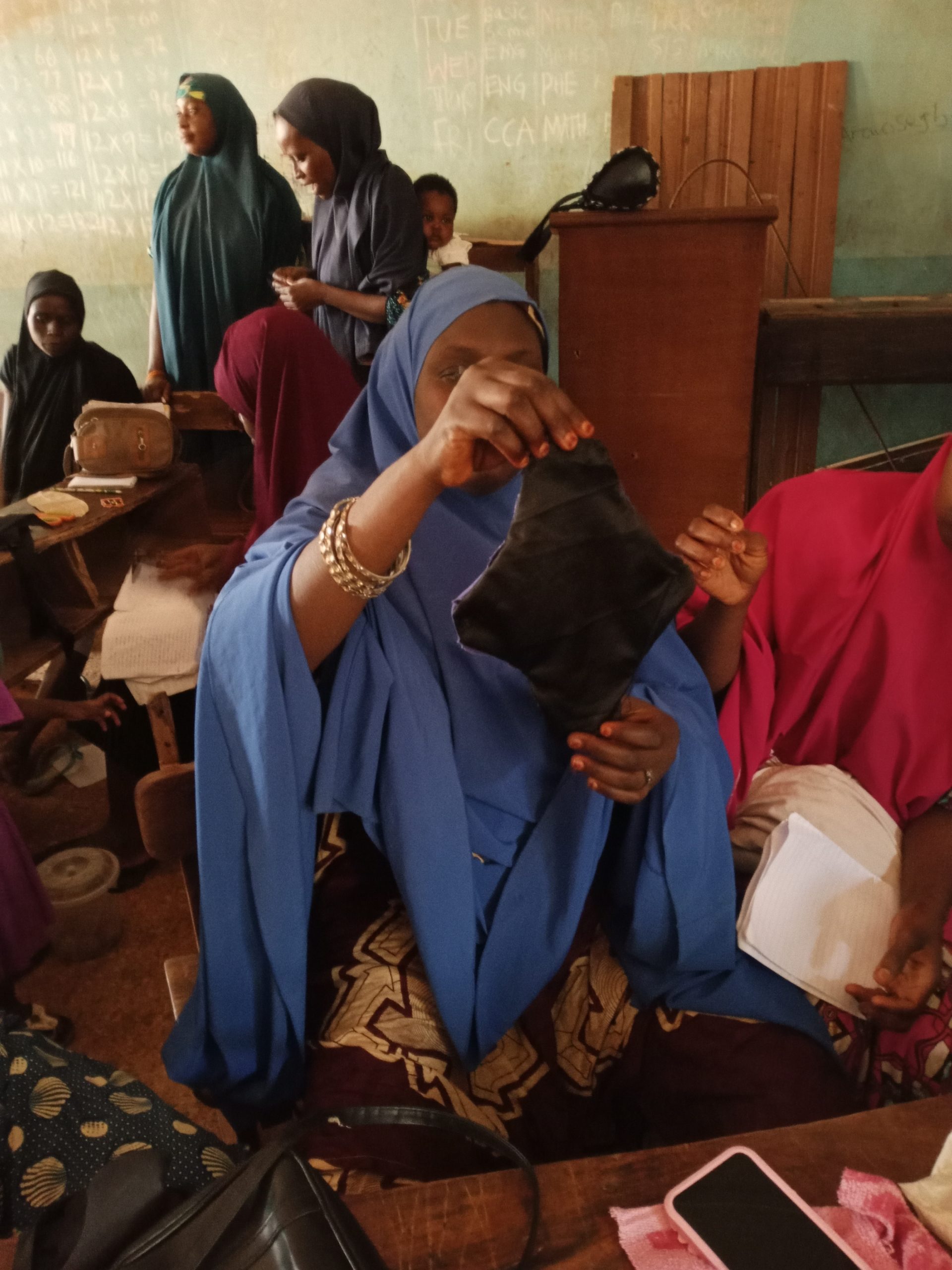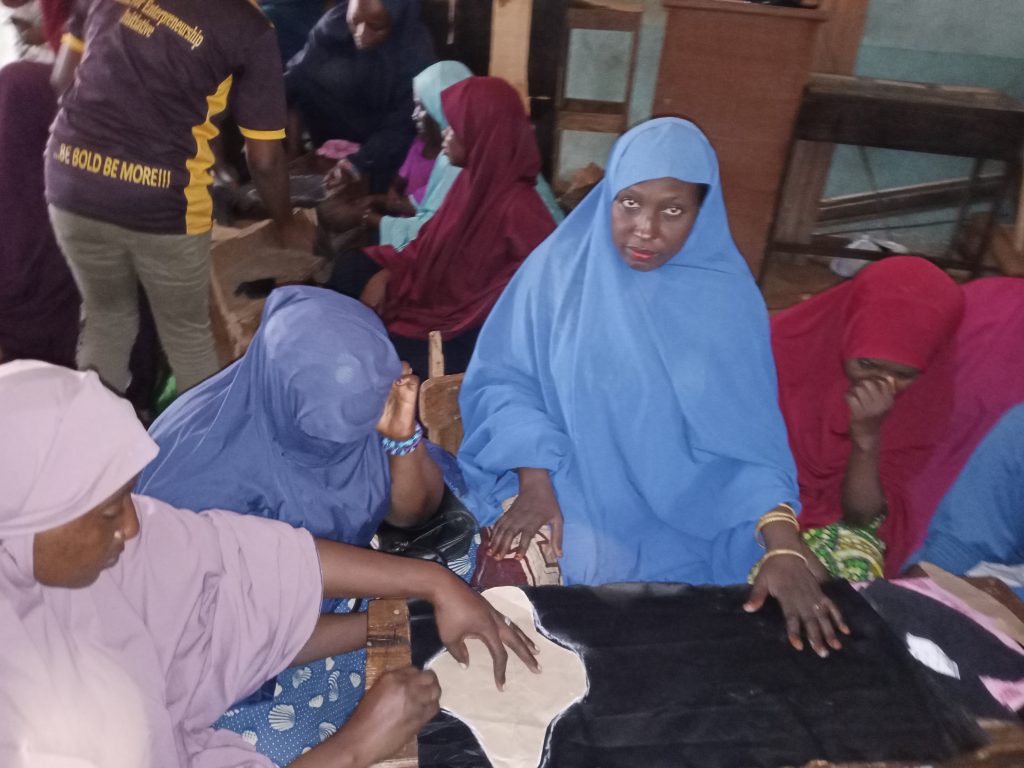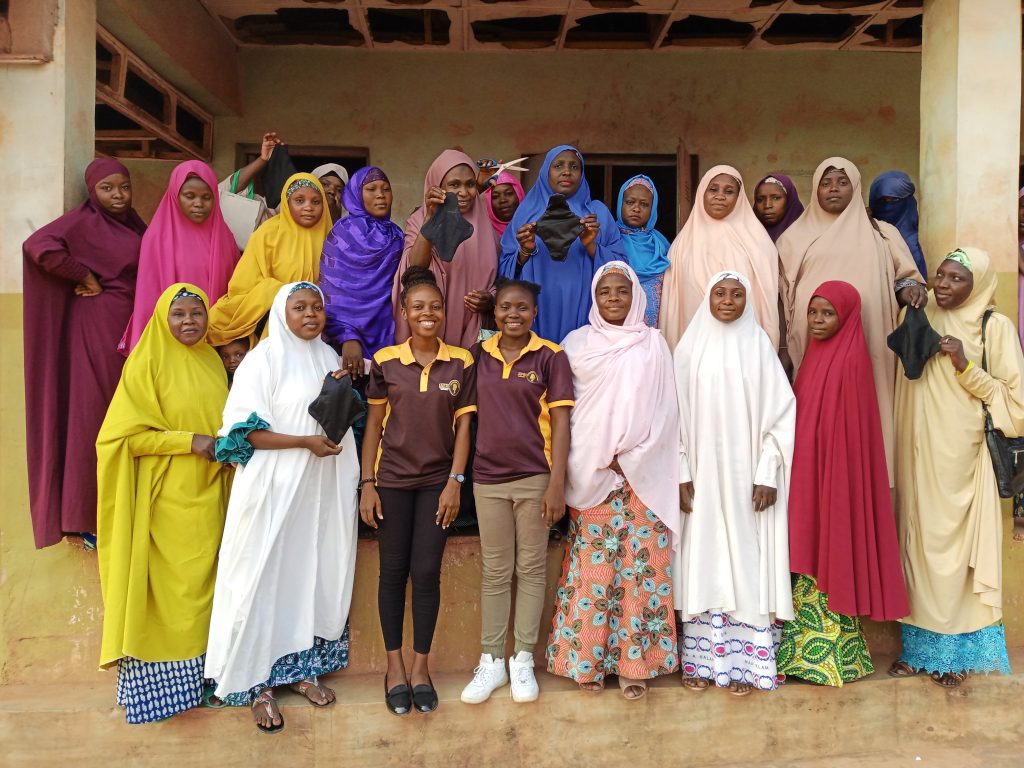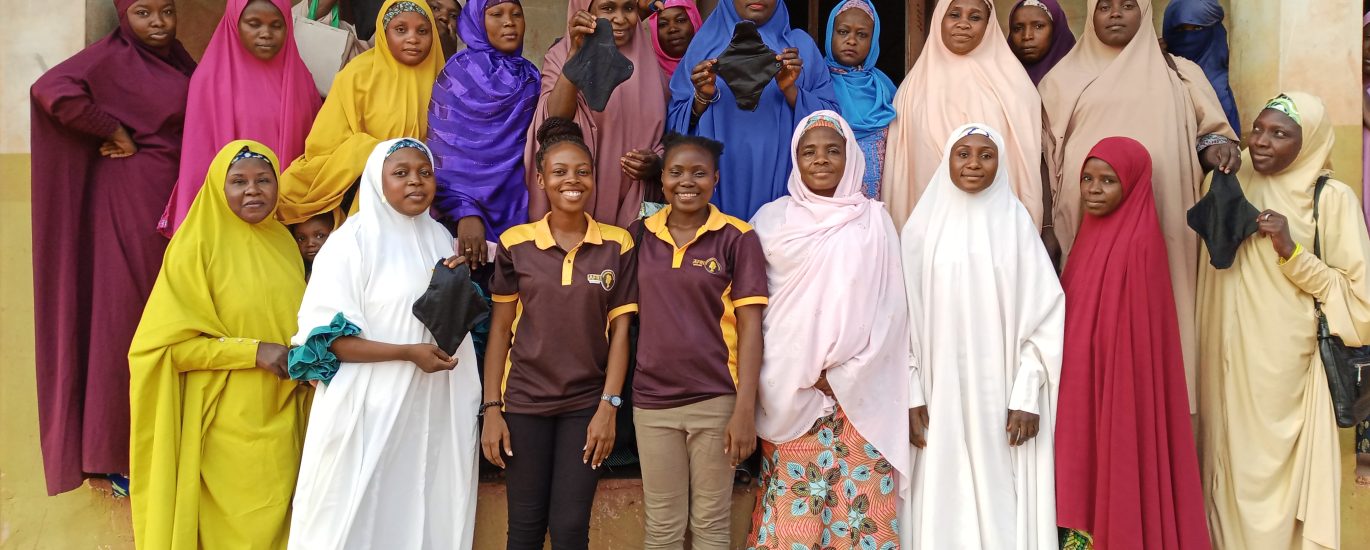February 7, 2023.
Menstruation and menstrual hygiene are essential, natural and healthy parts of life for most women and adolescents. Yet, the issue is often disregarded, stigmatised and often shrouded in myths and taboos.
Consequently, AfriWomen is spreading knowledge about menstruation, and hygiene and teaching skills on how to make affordable, customised and reusable sanitary towels.

Researchers at AfriWomen pointed out that about 57% of women and girls had poor awareness of menstrual hygiene according to a 2022 poll by the United Nations Population Fund (UNFPA). Furthermore, 77% of girls reported using and reusing rags as menstruation products because of poverty.
Also, according to Nigerian Health Watch, just 37% of women in Nigeria between the ages of 15 and 49 have access to clean supplies, a facility, painkillers, and facilities to dispose of spent menstrual hygiene products. AfriWomen research also indicated that in Nigeria, 63% of women have menstrual periods every month, yet they lack access to hygienic supplies and facilities.
In Sub-Saharan Africa including Nigeria, one in ten females misses school while they are menstruating, according to UNESCO. Around 20% of a particular school year is thought to be made up of this. This is due to a lack of facilities in schools and workplaces, which forces many girls and women to manage their periods in uncomfortable and unclean conditions, having a significant psychological impact on them.
Menstrual hygiene management has become also a hurdle for women and girls in Nigeria due to the country’s economic problems.
According to one of the women in the communities that we interviewed, Mrs Raman Atoke a mother of four, said: “Honestly speaking, the escalating cost of things are frustrating. A pad that was sold at N150 – N200 has now risen to N500. I have three girls and each uses two packs of pads per month. I use three packs because of my heavy flow. How do I cope with the act of spending N4,500 every month, just on pads?
For a nation like Nigeria where women and girls make up over half of the population, this is quite unfortunate.
According to the founder of AfriWomen, we envision a world where every girl can learn, play, and safeguard her health without experiencing stress, shame, or unnecessary barriers to information or supplies during menstruation.
Oso noted also that meeting the hygiene needs of all adolescent girls is a fundamental issue of human rights, dignity, and public health. It is also an essential solution to the core aim of the AfriWomen programme- increasing the enrolment and retention of girls in school.
Over the next three months, the AfriWomen will be out on the campaign, sensitisation and educating our girls in schools, our members, beneficiaries and other women in the community. Our campaign train will talk to beneficiaries about the things that girls should know before their first period and, importantly, boys on menstruation. The AfriWomen aims to build their confidence, contribute to social solidarity and encourage healthy habits.

Our trained staff will cover all our literacy centres and the community between February 7-14 to train and teach menstrual hygiene and skills to make affordable and hygienic reusable sanitary pads. Students will receive free instructions on how to cut, measure, choose a material for, and attach the sanitary towel to their underwear.
Free prototype samples in dignity bags will also be presented to participants. This initiative is targeted at supporting 250 women.

From March, the training will extend to selected schools across the Ibadan metropolis. The target is to empower 1000 girls with this initiative.


